Hundreds of people packed Congress Square Park on Tuesday night to rally against the growing number of states enacting new restrictions on abortion.
The crowd of mostly women held signs and cheered as a slate of speakers railed against what they described as a systematic erosion of a constitutional right for women to control their bodies.
Spurred by new laws passed in recent weeks restricting abortion access in Alabama, Missouri, Georgia and Ohio, the rally was part of a coordinated national campaign in which thousands of demonstrators gathered in cities across the country to resist what they see as looming challenge to abortion rights before the United States Supreme Court.
“Are you pissed off?” asked Nicole Clegg, vice president of public policy for Planned Parenthood of Northern New England.
“Yes!” the crowd responded.
“So am I. I am so sick and tired of being told that my body, my health and my life are negotiable in politics,” Clegg said. “Let’s not be fooled by this. This is a carefully crafted agenda to ban abortion outright.”
Although Maine legislators have not taken steps to ban or curtail access to the procedure – in fact two measures have passed legislative hurdles in recent weeks to further protect and expand access to abortion in Maine – demonstrators were critical of Sen. Susan Collins of Maine, who cast the decisive vote in the confirmation of Supreme Court Justice Brett Kavanaugh. His appointment cemented a five-justice conservative majority that abortion critics see as key to striking down Roe v. Wade, the landmark 1973 decision protecting abortion rights.
Despite Maine’s generally liberal attitude toward abortion, Tanya Hollander, of Auburn, told the crowd that when she sought to terminate her pregnancy, she still struggled to find a provider within driving distance who could see her in time so she could end the pregnancy with a pill instead of an invasive procedure.
The clinic with an opening was in New Hampshire, and after putting her professional life on pause, she nearly maxed out a credit card to pay for it. Not everyone in Maine who seeks an abortion can afford to jump through those hoops, Hollander said.
“I can’t imagine if I lived in Alabama or Georgia or Missouri, or for that matter, Aroostook County,” Hollander said. “I know we’re all angry. Don’t sit with that anger. Get on your phone right now. Make a donation. Sign up to volunteer. Talk to everyone you know … about abortion. Tell them why it’s so important that abortion be safe, legal, affordable and accessible for everyone, no matter where you live.”
Ohio became the first state to pass new restrictions in April with a “fetal heartbeat” bill that bans abortions in as few as six weeks after conception.
Georgia followed suit in May with its own fetal heartbeat legislation. Missouri also passed a law restricting the procedure after eight weeks, and preemptively banned the procedure in almost all cases.
Alabama’s law has generated some of the most strident opposition. The legislation criminalizes abortion in almost all cases, except when the health of the woman is at serious risk. Anyone who performs an abortion in Alabama could be prosecuted for a felony punishable by 10 to 99 years in prison.
The bill’s authors and proponents have said the legislation is designed to generate a challenge that could make it before the Supreme Court. Under current jurisprudence, Alabama’s ban is unconstitutional. But advocates say they believe the time is right to bring the issue before the high court once again.
Roe v. Wade legalized access to abortion in United States in 1973, when the court held that women have complete control over their pregnancies within the first trimester, with varying levels of state authority permitted in the second and third trimesters when a fetus reaches viability to survive outside a woman’s uterus.
The last serious challenge to abortion before the Supreme Court came in 1992 in Planned Parenthood v. Casey, which grew out of a Pennsylvania law that restricted access to abortion care. The court held in a 5-4 decision that states may impose restrictions on abortion care, but may not impose a “undue burden” on women seeking to terminate a pregnancy.
Since the court’s approval of state limits on abortion, state legislators across the country have chipped away at abortion access in their jurisdictions, adding new layers of regulation and creating a patchwork of laws and standards. Alabama’s recent legislation is so far the most extreme.
Lindsay Brown, 24, of South Portland, said she spent two hours making a colorful sign showing a diagram of the female reproductive system with the caption, “We are not ovary-reacting.”
“Everyone should have a choice. It’s a human right,” Brown said.
The prospect of the Supreme Court overturning Roe would result in a mass uprising, Brown said.
“I think females are going to rage,” Brown said. “And if they haven’t heard us yet, they will hear us then.”
Copy the Story LinkSend questions/comments to the editors.


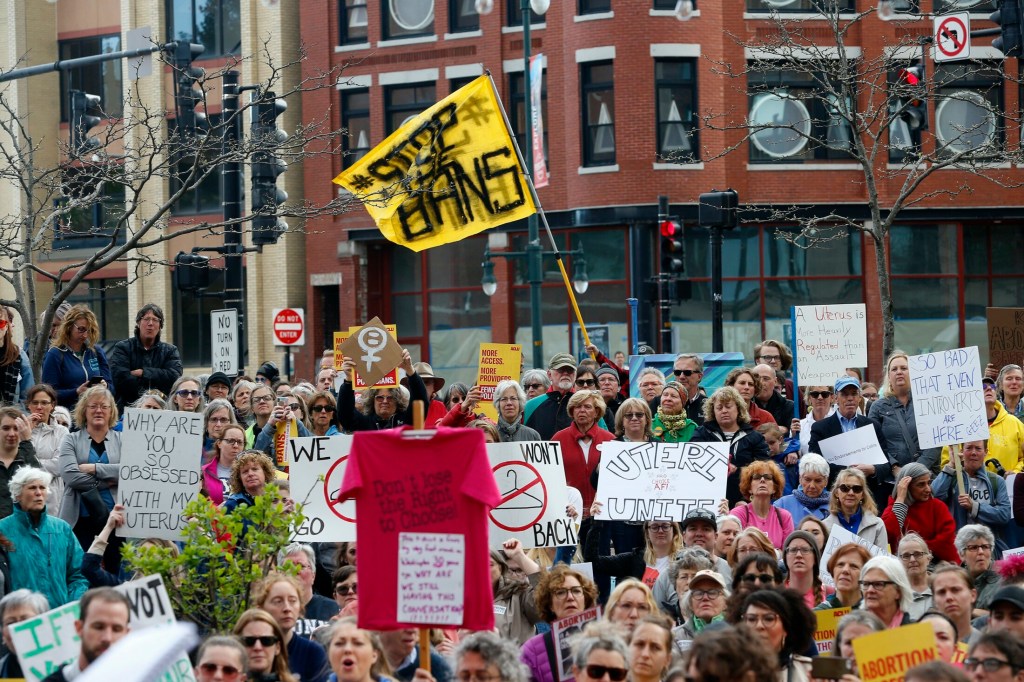
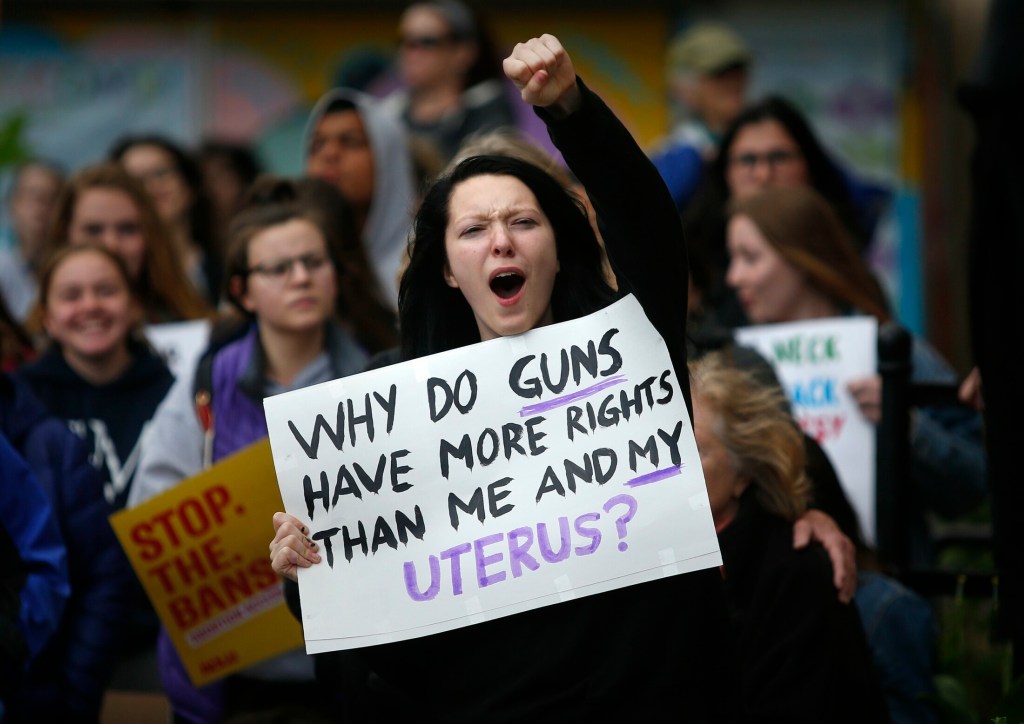
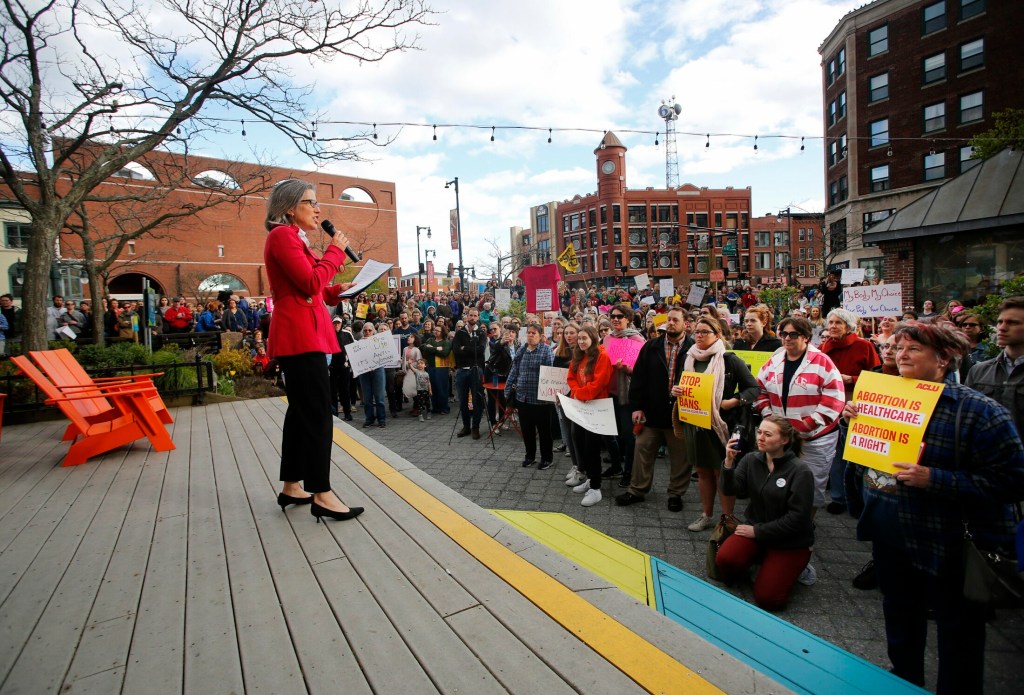
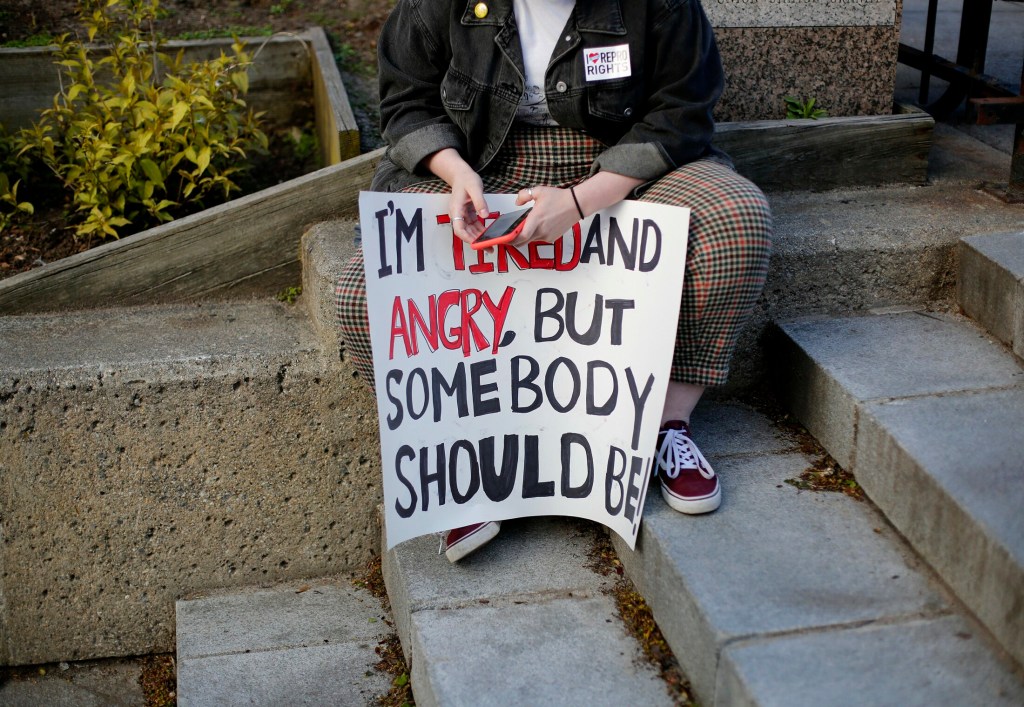
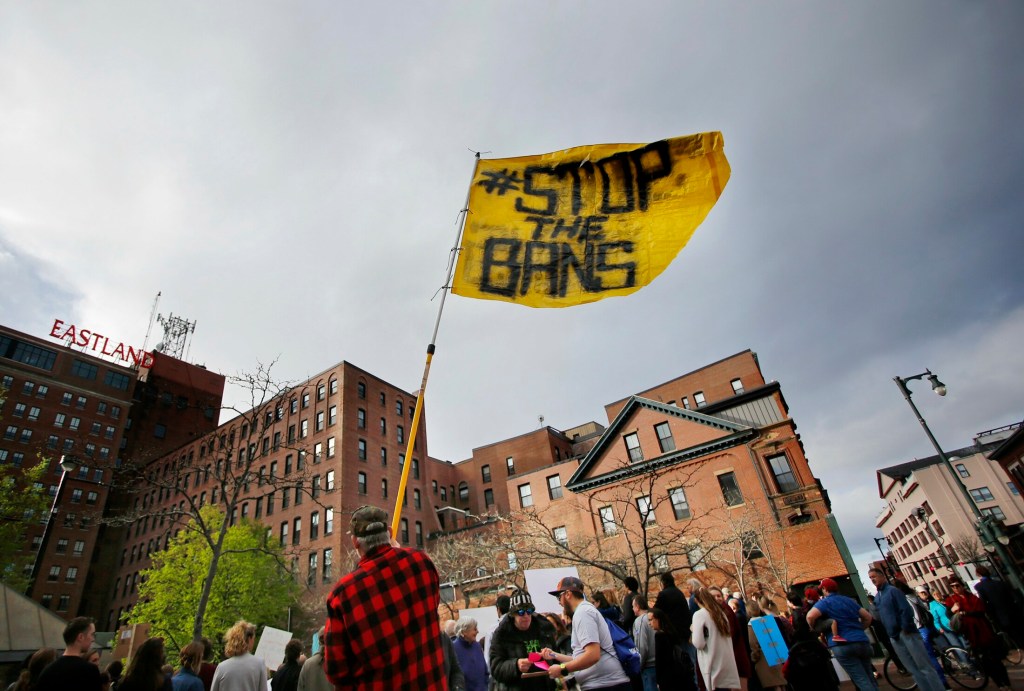
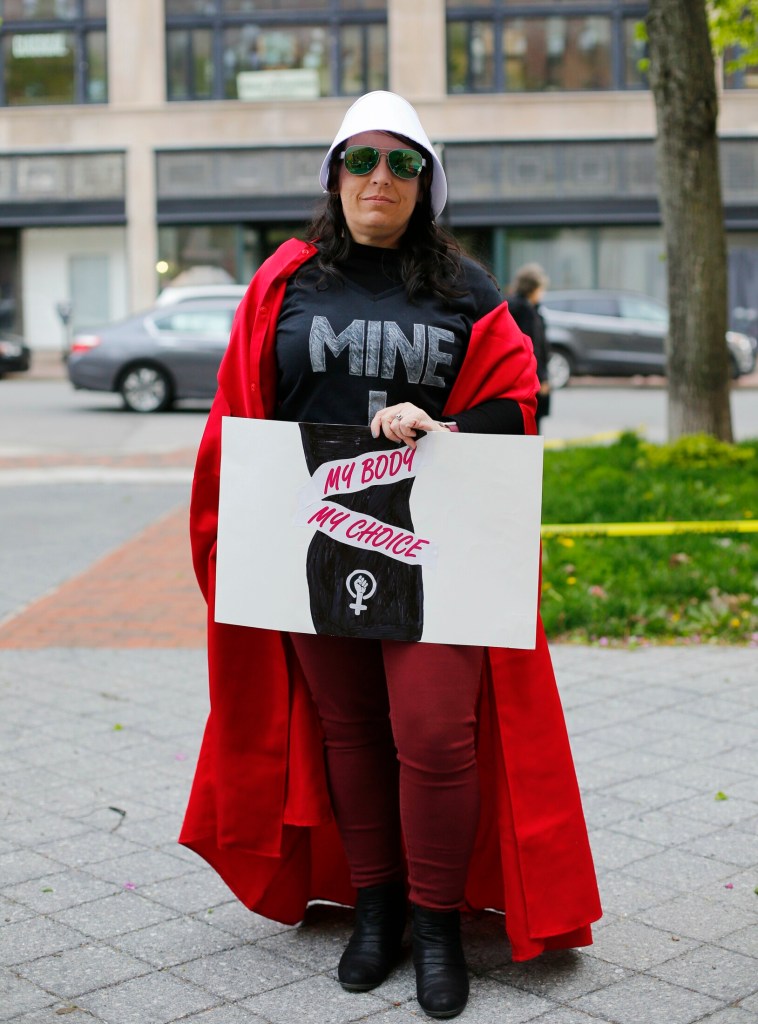
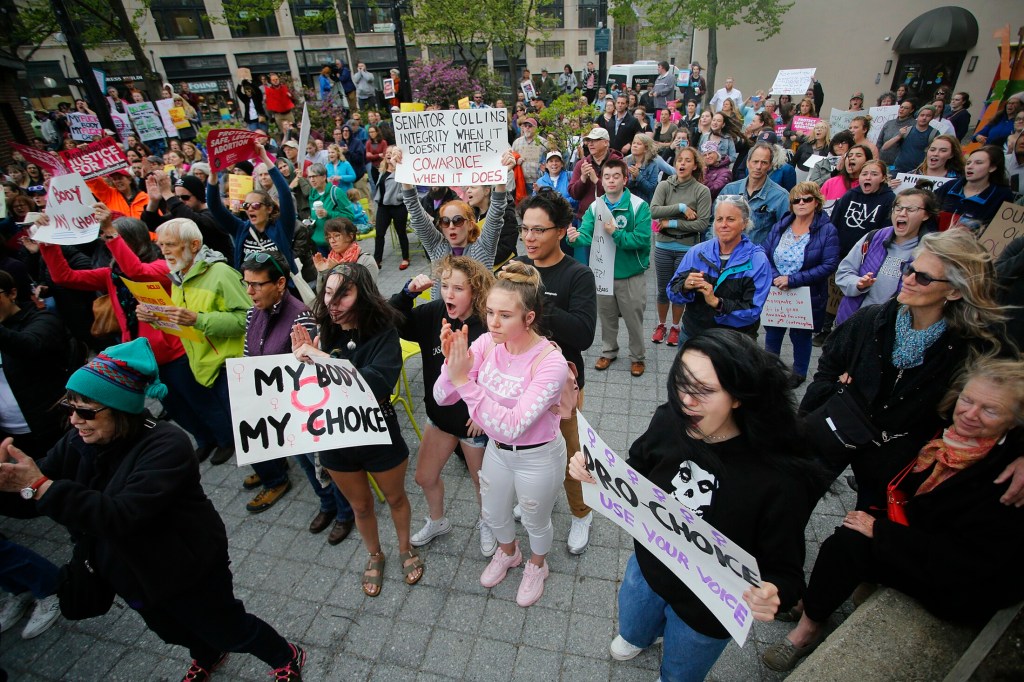
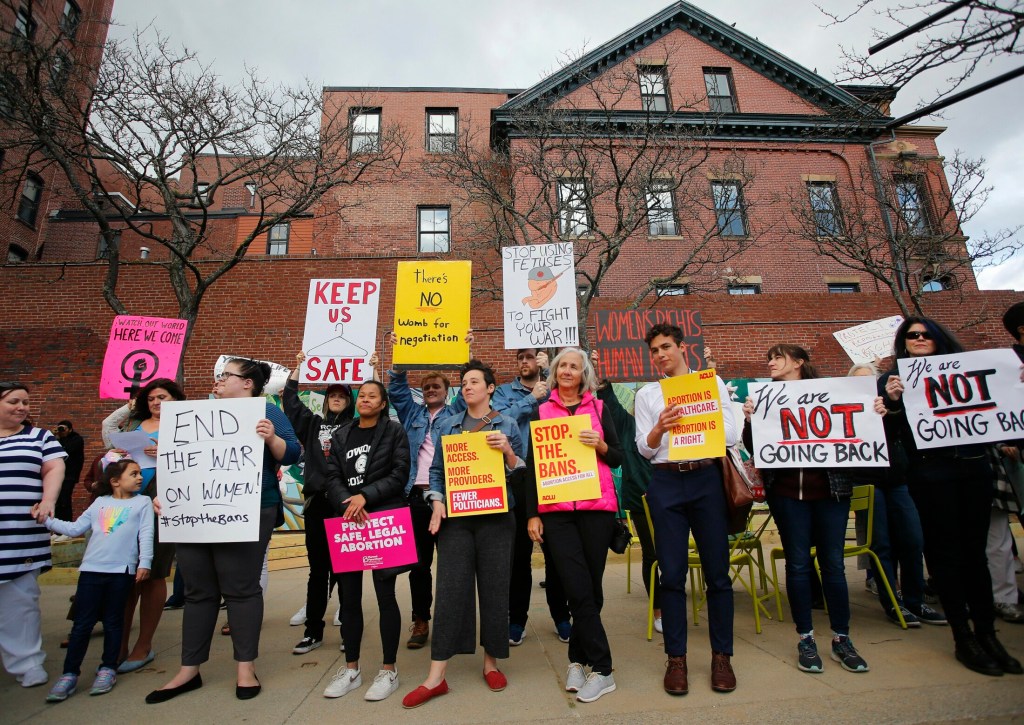
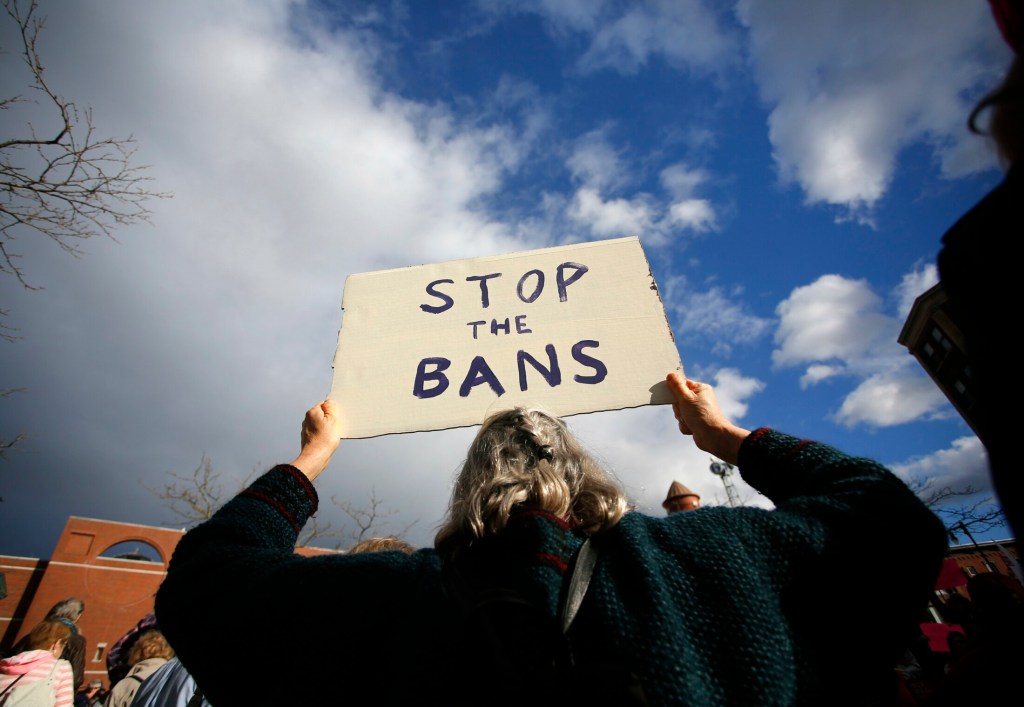

Success. Please wait for the page to reload. If the page does not reload within 5 seconds, please refresh the page.
Enter your email and password to access comments.
Hi, to comment on stories you must . This profile is in addition to your subscription and website login.
Already have a commenting profile? .
Invalid username/password.
Please check your email to confirm and complete your registration.
Only subscribers are eligible to post comments. Please subscribe or login first for digital access. Here’s why.
Use the form below to reset your password. When you've submitted your account email, we will send an email with a reset code.